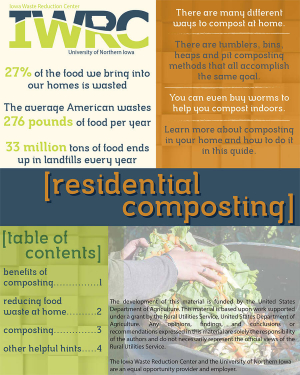 Did you know that 27% of the food we bring into our homes is wasted? Or that the average American wastes 276 pounds of food per year? Think about all the wasted resources with this food - the energy, time and fuel to produce, package and transport the food. The money you spent on the food. And the methane gas it is now producing in the landfill. It's not a pretty picture.
Did you know that 27% of the food we bring into our homes is wasted? Or that the average American wastes 276 pounds of food per year? Think about all the wasted resources with this food - the energy, time and fuel to produce, package and transport the food. The money you spent on the food. And the methane gas it is now producing in the landfill. It's not a pretty picture.
That's why we've been placing such an emphasis on food waste reduction lately. It saves resources, it saves time, it saves money. But, we know that not all food waste can be eliminated. You will always have excess and inedible materials like corn cobs, coffee grounds or apple cores.
Since you can't reduce these materials, how about you transform them from a waste to a resource - compost!
It's a great alternative to sending food waste to the landfill. Not only will you be preventing pollution (no methane gas being generated from the food waste at the landfills), but compost helps to enrich the soil in your yards and gardens, can decrease soil erosion and increase water holding capacity.
To help get you started, we've developed a toolkit with basic information about the benefits of composting, things to consider in setting up your compost, as well as what to keep out and troubleshooting solutions.
To download the toolkit, visit our Residential Food Waste Reduction webpage.

